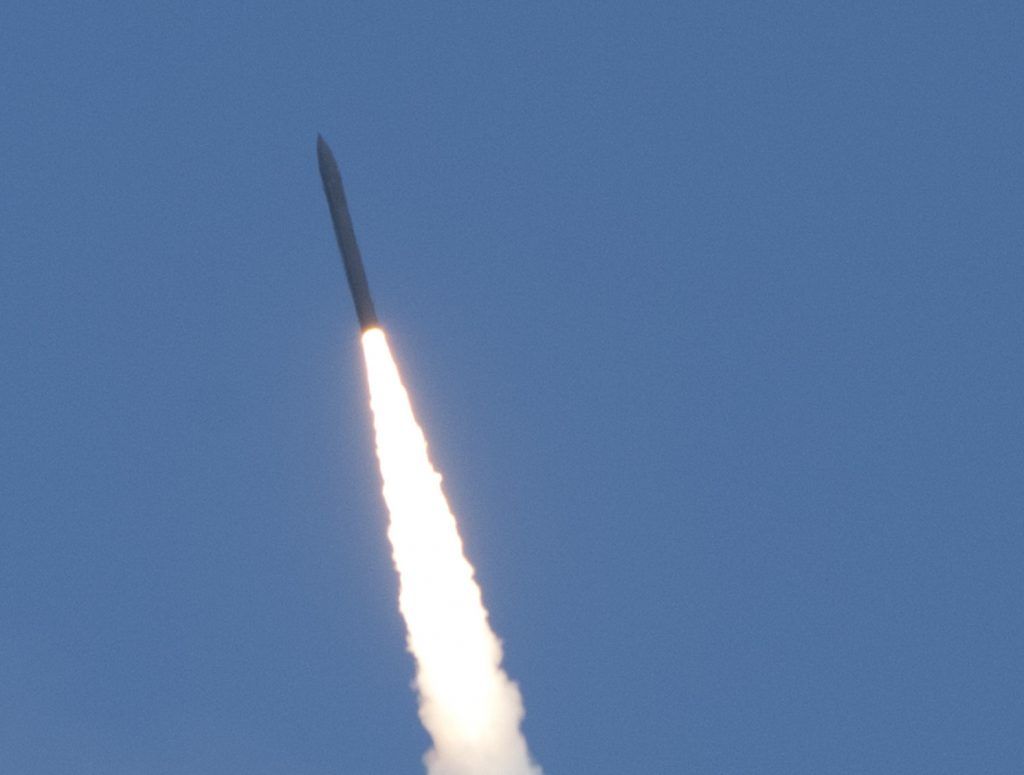Introduction: The great missile defense dilemma
By John Mecklin | June 28, 2018
 A Missile Defense Agency flight test of a ground-based interceptor, launched from Vandenberg Air Force Base, Calif. in June 2014. Source: Missile Defense Agency
A Missile Defense Agency flight test of a ground-based interceptor, launched from Vandenberg Air Force Base, Calif. in June 2014. Source: Missile Defense Agency
Driven by varying (mis)perceptions of the motives and technological capabilities of their adversaries, major nuclear powers are pursuing their own versions of missile defenses – and a great variety of ways to defeat them through maneuverable missiles, decoys, and other missile defense penetration aids. In this issue, we look at this expensive and ineffective – yet potentially destabilizing – international pursuit of missile defense with the help of an extraordinary lineup of the world’s top missile defense experts:
- Ambassador James E. Goodby and MIT missile defense expert Ted Postol explain a drone-based, boost-phase missile defense program that might actually work and, in concert with diplomacy, be useful in deterring and dealing with North Korea.
- Princeton University’s Frank von Hippel and Cornell University’s George Lewis present practical ways to limit the growth of missile defense systems and the offensive arms races they drive.
- Russian expert Alexey Arbatov, a former member of the Russian parliament, details the fascinating contradictions of the Russian approach to missile defense, and what they mean for the possibility of renewed arms control talks with the United States.
- The Union of Concerned Scientists’ Laura Grego lays out the extraordinary cost and unreliability of the US ground-based midcourse missile defense system.
- Chinese expert Li Bin contends that China, because of its historical fear of falling behind technologically and other factors, would be more than open to negotiations on missile defense limits.
- And Thomas G. Roberts of the Center for Strategic and International Studies points out why US plans for a space-based missile interceptor system constitute anything but a good idea.
Together, we make the world safer.
The Bulletin elevates expert voices above the noise. But as an independent nonprofit organization, our operations depend on the support of readers like you. Help us continue to deliver quality journalism that holds leaders accountable. Your support of our work at any level is important. In return, we promise our coverage will be understandable, influential, vigilant, solution-oriented, and fair-minded. Together we can make a difference.
Issue: Bulletin of the Atomic Scientists Volume 74 Issue 4
Topics: Analysis, Nuclear Risk















